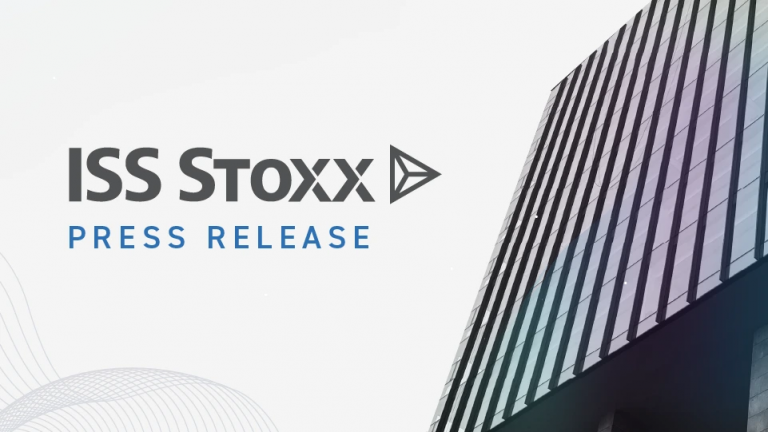Below are highlights from ISS’ newly released 2024 Market IQ – Qatar. The full report is available to institutional subscribers by logging into ProxyExchange then selecting the Governance Exchange and its Report Center tab and to corporate subscribers by logging into Governance Analytics then selecting the Governance Exchange and the Report Center tab.
BACKGROUND:
Qatar has faced remarkable prosperity in the last few years, having one of the world’s highest GDP per capita owing to its vast natural gas resources. Qatar has been leveraging these resources with the aim of developing a diversified, knowledge-based economy, constituting one of the pillars of Qatar National Vision 20301 – a development plan launched in 2008 which is at the core of the government’s strategy to facilitate a business environment supporting investment and growth.
Notwithstanding the dominance of natural gas and the country’s aim to expand LNG production under the North Field Liquified Natural Gas (LNG) expansion project, Qatar has strengthened non-oil sectors such as manufacturing, construction and financial services. It has also increased focus on sustainability and clean fuels as it strives to play a role in energy transition. The government has taken steps to reduce the economy’s reliance on hydrocarbons with its National Environment and Climate Change Strategy which was unveiled in October 2021. A dedicated Ministry for Environment and Climate Change (MECC) was created to implement this strategy and the MECC launched a national climate change action plan aimed at achieving a 25 percent reduction in greenhouse gas emissions by 2030 (also one of the top priorities of Qatar’s National Vision 2030)2.
Alongside these developments, the Ministry of Economy and Commerce has updated Qatar’s Companies Law in 2021 to support its economic transformation and to modernize legislation to align with international best practices3. Concerning ESG reporting, the QSE has been encouraging listed companies to engage in such reporting through its “Guidance on ESG Reporting” which was published in 20174. Despite the fact that such reporting remains voluntary, the QSE has stated that a transition to mandatory reporting in the near future is probable5.
KEY CORPORATE GOVERNANCE FEATURES IN QATAR:
Positive features
- Invitations to shareholders to attend the general meeting must be published on the website of the financial market, the company’s website and in a local daily newspaper at least 21 days ahead of the meeting, instead of the prior requirement of at least 15 days stipulated by the previous Companies Law;
- Shareholders have the right to attend and vote during a general meeting using modern technologies;
- Shareholders may request to add items in the general meeting’s agenda if they hold at least 5 percent of the capital instead of the prior requirement of holding at least 10 percent of the capital by the previous Companies Law;
- Board members and senior executives shall disclose to the board any direct or indirect interests in the company’s transactions and a general meeting approval is required if such transactions represent 10 percent of more of the company’s market value or the value of the net assets, whichever is less;
- In practice, most of the Qatari companies’ audit committees have an independent chair, in line with the Code and corporate governance best practices.
- The government enacted Law No. 1 of 2019 allowing up to 100 percent foreign ownership in all sectors except for banking and insurance (unless an exemption is used by the Council of Ministers), commercial agencies, certain government owned entities and other sectors as decided by the Council of Ministers.
Room for improvement
- In practice, most Qatari companies only disclose the financial statements ahead of the AGM. The annual report, which includes the board and corporate governance reports, is usually disclosed post-AGM. However, the Companies Law stipulates that the balance sheet and the board report must be published at least one week ahead of the meeting and that the board chair shall publish the audited financial statements and a summary of the board report in two daily local newspapers and on the company’s website, if any, at least 15 days prior to the general meeting;
- Many companies, including even large market cap companies, do not disclose the names and biographies of the nominees up for election ahead of the general meeting, in breach of corporate governance best practices;
- Most companies present the approval of directors’ discharge along with the approval of their remuneration for the fiscal year in review under one resolution during AGMs. Bundling together proposals that could be presented as separate voting items leave shareholders with an all-or-nothing choice, skewing power disproportionately towards the board and away from shareholders;
- Most publicly listed companies have no diversity criteria especially in terms of gender. Qatar has one of the lowest rates of female participation in public boards within the MENA region. However, one of the main aspects of the Qatar National Vision 2030 is engaging female participation in different fields.
If you are not a subscriber, please contact sales@issgovernance.com (for institutional investors) or contactus@isscorporatesolutions.com (for corporations) to learn more about accessing bespoke governance research.
1 Qatar National Vision 2030, Planning and Statistics Authority
2Prime Minister Launches Qatar’s National Strategy for Climate Change
3 Qatar and United Arab Emirates Revise their Company Laws to Align with International Best Practices
4Guidance on ESG Reporting, Qatar Stock Exchange
5What can we expect in the future?
By: Nada Bushnak, ISS Governance




